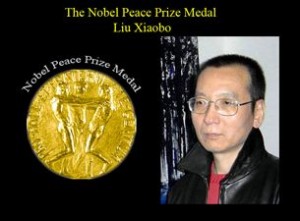挪威诺贝尔委员会已经决定,将2010年诺贝尔和平奖授予刘晓波,以表彰他为中国基本人权所作的长期非暴力抗争。诺贝尔奖委员会长期以来就认为,人权与和平密切关联。这些基本权利正是诺贝尔创始人阿尔弗雷德·诺贝尔遗嘱中所写的“各民族间的兄弟情义”的先决条件。
在过去的几十年,中国已经取得了史无前例的经济进步,现已成为世界第二大经济体,亿万人民已经摆脱贫困,政治参与的范围也在扩大。
中国的新地位必须意味着增进的责任。中国违反了它所签署的几个国际协议,也违反它自己有关政治权利的规定。中国《宪法》第35条规定:“中华人民共和国公民有言论、出版、结社、游行、示威的自由。”实际上,这些自由已被证实明显地对中国公民的缩减了。
过去二十多年,刘晓波已经成为要在中国应用这些基本人权的强有力发言人。他参与了1989年的天安门抗议;他是《零八宪章》的一位主要作者,这些权利的宣言发表于联合国《世界人权宣言》六十周年的2008年12月10日。次年,刘晓波以“煽动颠覆国家政权”被判处有期徒刑十一年并剥夺政治权利二年。刘晓波一直坚持这个判刑违反了中国自己的宪法和基本人权。
在国内外的许多中国人正发动在中国建立普世人权的运动。刘晓波通过被判入狱的严厉惩罚,已经成为这个在中国争取人权的广泛斗争的最重要标志。
奥斯陆,2010年10月8日
(独立中文笔会翻译)
————————————————-
Announcement
The Norwegian Nobel Committee
The Nobel Peace Prize for 2010
The Norwegian Nobel Committee has decided to award the Nobel Peace Prize for 2010 to Liu Xiaobo for his long and non-violent struggle for fundamental human rights in China. The Norwegian Nobel Committee has long believed that there is a close connection between human rights and peace. Such rights are a prerequisite for the “fraternity between nations”of which Alfred Nobel wrote in his will.
Over the past decades, China has achieved economic advances to which history can hardly show any equal. The country now has the world’s second largest economy; hundreds of millions of people have been lifted out of poverty. Scope for political participation has also broadened.
China’s new status must entail increased responsibility. China is in breach of several international agreements to which it is a signatory, as well as of its own provisions concerning political rights. Article 35 of China’s constitution lays down that “Citizens of the People’s Republic of China enjoy freedom of speech, of the press, of assembly, of association, of procession and of demonstration”. In practice, these freedoms have proved to be distinctly curtailed for China’s citizens.
For over two decades, Liu Xiaobo has been a strong spokesman for the application of fundamental human rights also in China. He took part in the Tiananmen protests in 1989; he was a leading author behind Charter 08, the manifesto of such rights in China which was published on the 60th anniversary of the United Nations’Universal Declaration of Human Rights, the 10th of December 2008. The following year, Liu was sentenced to eleven years in prison and two years’deprivation of political rights for “inciting subversion of state power”. Liu has consistently maintained that the sentence violates both China’s own constitution and fundamental human rights.
The campaign to establish universal human rights also in China is being waged by many Chinese, both in China itself and abroad. Through the severe punishment meted out to him, Liu has become the foremost symbol of this wide-ranging struggle for human rights in China.
Oslo, October 8, 2010

